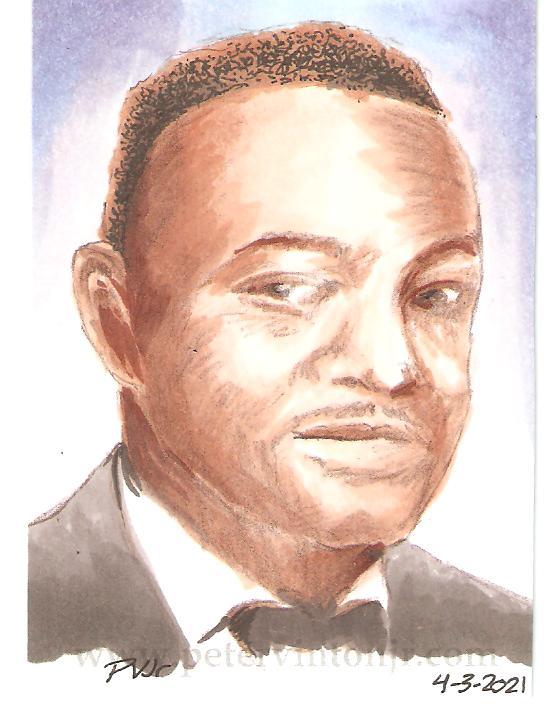
An ongoing illustrative history study
This piece originally posted 5/4/2021
Prelude | 80 | 81 | 82 | 83 | 84 | 85 | 86 | 87 | 88 | Email |
|---|
"We are in an age of discovery... We live in the world of the unknown. That's the only place to live."
Meet Lloyd Albert Quarterman: flourine chemist, and one of only six Black scientists on the Manhattan Project. Born in 1918 in Philadelphia, Quarterman graduated from St. Augustine's College, worked as a junior chemist at Columbia University, and studied under none other than Enrico Fermi at the University of Chicago.
Quarterman was one of the early recruits to the Manhattan Project in 1943, detailed in particular to a confidentual Chicago-based team that worked to separate the U-235 isotope with a distillation system that used hydrogen fluoride --at its simplest, a gaseous diffusion method of obtaining fissionable materials: that is to say, transformation of solid uranium into uranium gas. "We split the atom in the East. We were working there on the atomic bomb," he would later recall. "But the world's first nuclear reactor, which used the atomic splitting process in a peaceful way, was set up here in Chicago."
After the war, Quarterman earned his Master of Science from Northwestern University in 1952. He was also on the design team that developed the first nuclear reactor which would be used in atomic submarines. He then returned to the now-renamed Argonne National Laboratory in Chicago, where he would continue his research into fluoride solutions and their molecular structure. For hydrogen fluoride, Quarterman developed a unique, corrosion-resistant "window" made of diamonds --aptly referred to as the diamond window-- that ultimately led to its first successful discovery trial in 1967. As a teacher he was highly regarded as a mentor figure, one who made a point of encouraging Black students to embark on scientific careers of their own. Towards the end of his life, Quarterman also began preliminary research into synthetic blood, though he was unable to complete this project --at the time he would only divulge to an interviewer that he "ran into socio-political problems."
Next page - Lesson 85: Jack Garrison